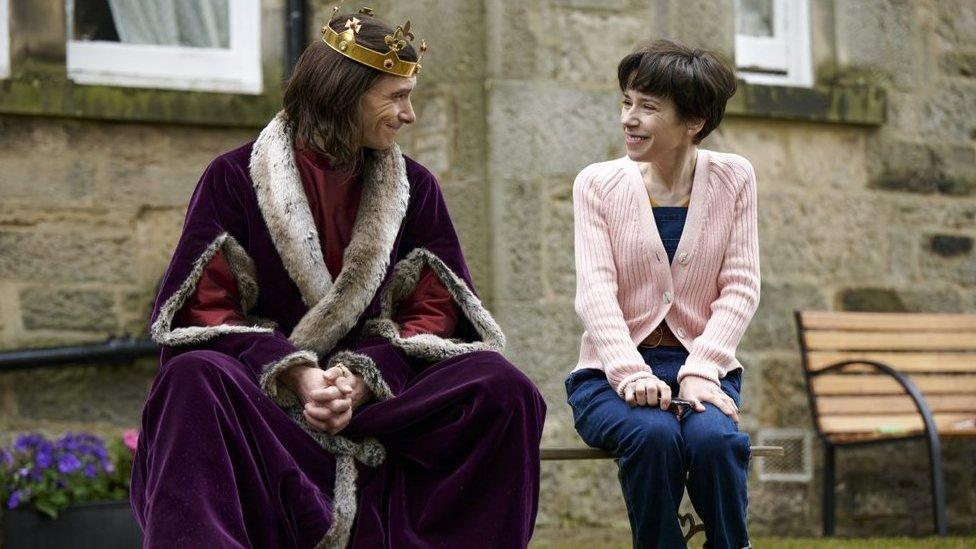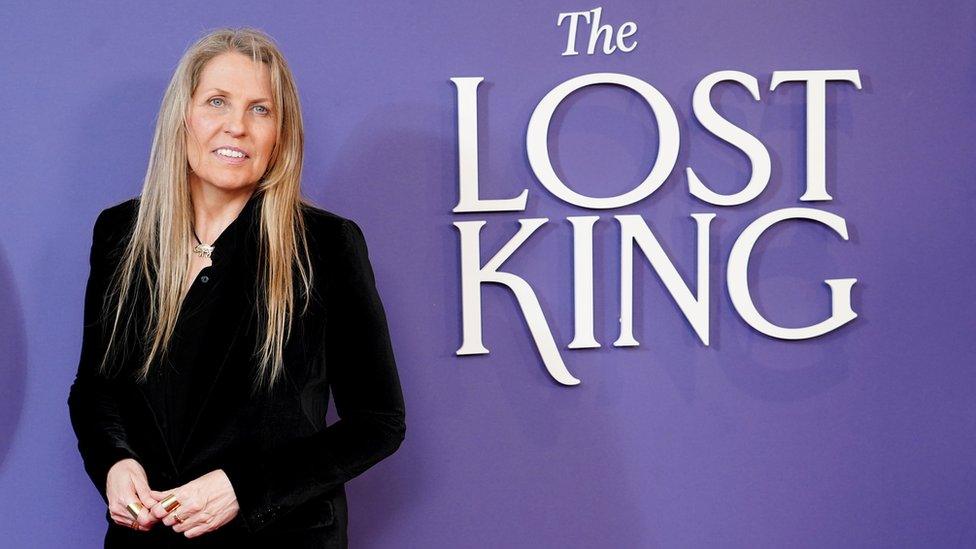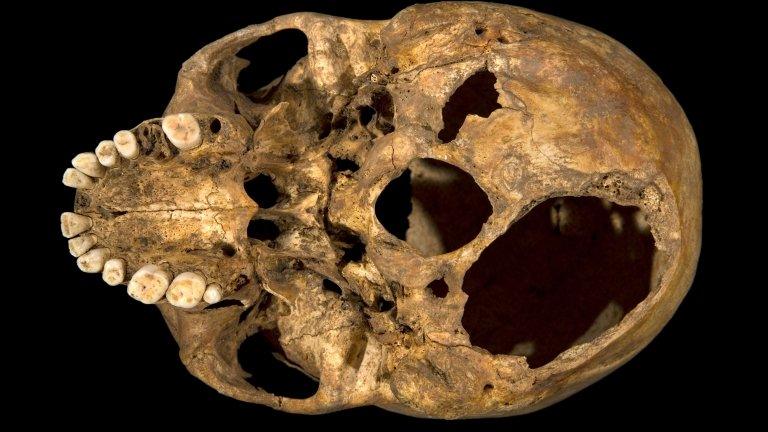Steve Coogan and companies sued over Richard III film
- Published

Steve Coogan stars opposite Sally Hawkins in The Lost King
Steve Coogan is being sued for libel by a university official who claims he was made to look "devious" and "weasel-like" in a film about the discovery of Richard III's remains.
Richard Taylor has started legal action against the comedian, who was a writer and producer of The Lost King.
Mr Taylor said he was unhappy about the way his character was portrayed.
The film told the story of the search for the Plantagenet monarch under a Leicester council car park in 2012.
It focused on the role of historian Philippa Langley in the search, which involved archaeologists from the University of Leicester.
Mr Taylor was the deputy registrar of the University of Leicester at the time and was later played in the film by actor Lee Ingleby.
A hearing at the High Court, on Thursday, was told Mr Taylor was bringing legal action against Mr Coogan, his production company Baby Cow, and Pathé Productions.

Richard Taylor's barrister said the film made him appear "patronising and misogynistic"
William Bennett KC said his client Mr Taylor was presented as being "dismissive, patronising and misogynistic" towards Ms Langley.
In written submissions, the barrister said: "The relevant context is the 'good versus bad' narrative, which runs through the film.
"Ms Langley is portrayed as the gutsy underdog heroine struggling against opposition and the claimant as the arrogant villain.
"He not only takes steps to make sure that people do not know about her role but takes the credit, which was rightfully hers, for himself and the university."

The film-makers are defending Mr Taylor's legal action
Mr Taylor, who is now chief operating officer at Loughborough University, was also shown as a "devious, weasel-like person" and a "suited bean-counter", Mr Bennett told the court.
The barrister later said Mr Taylor was portrayed as "mocking" Richard III's disability and "linking physical deformity with wickedness or moral failings".
Mr Bennett added: "It's a straightforward, plot-driven film where everything that is said and done matters."
Mr Coogan, who did not attend the hearing, and the two production companies are defending the libel claim.

Philippa Langley was portrayed by Sally Hawkins in the film
Andrew Caldecott KC, representing the Alan Partridge star and companies, said in written submissions: "It is a feature film, not a documentary.
"It would be clear to the ordinary reasonable viewer that the film is not a documentary, it is a dramatisation of events.
"The concept of fictional films based on real events is not a new one."
Mr Caldecott said the film stated it was "based on a true story", adding: "It is not a literal portrayal of exact words and would be understood as putting forward Ms Langley's perception."
The barrister denied that Mr Taylor is shown to be sexist or misogynist, adding his "concern is about Ms Langley's amateur status and lack of historical expertise, and not her gender".
He added: "Whilst the film is clearly strongly critical of Mr Taylor and the university for sidelining Ms Langley at the dig and after the discovery of the body and not giving her sufficient credit, his clear motive is to exploit the discovery to further the university's commercial interests.
"No reasonable viewer would conclude that his motive was sexism or misogynism."
Mr Caldecott also said Mr Taylor was not portrayed as mocking Richard III's disability, "and certainly not mocking disabled people in general".
Judge Jaron Lewis will give a ruling on preliminary issues in the claim at a later date.

Follow BBC East Midlands on Facebook, external, on X, external, or on Instagram, external. Send your story ideas to eastmidsnews@bbc.co.uk, external or via WhatsApp, external on 0808 100 2210.
Related topics
- Published8 October 2022

- Published4 October 2022

- Published27 September 2022

- Published19 August 2022

- Published4 February 2013
